Para Nuestras Hijas
- Global Health
- Public Policy
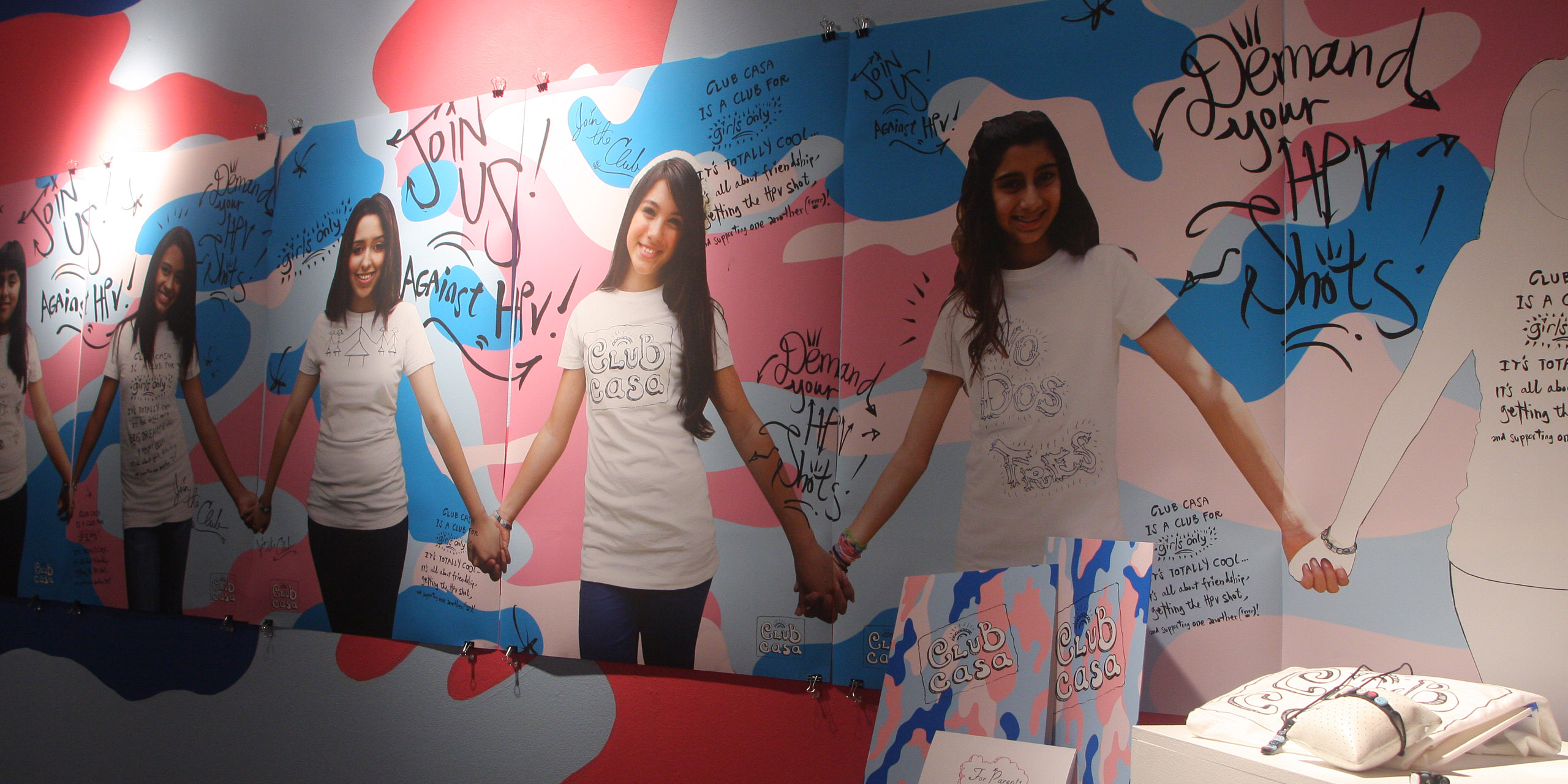
Summer 2010
Students help spread the word about the HPV vaccine to Latinas throughout LA by creating informative works of art.
Design Brief/Challenge
A leading cause of death among Latinas in Los Angeles, cervical cancer is a preventable disease. The incidence of cervical cancer is projected to double, perhaps even triple, in the coming decades given current population growth and trends.
Unlike some forms of cancer, we know what causes cervical cancer—human papillomavirus, known as HPV—and there are vaccines available for preteen girls that can prevent it. The problem is that, for a variety of social, economic and political reasons, acceptance of the HPV vaccine in the Latina community is low. As a result, effective means of intervention are in urgent need.
Studio sponsors from USC Keck School of Medicine, USC Norris Comprehensive Cancer Center and USC Annenberg School of Communications presented a challenge to students: Create both a traditional and non-traditional communications program to increase acceptance of the HPV vaccine among preteen girls, and the mothers who must give their permission for it, living in the underserved neighborhoods of East L.A.
Envisioned as a companion piece to Es Tiempo—last summer’s critically acclaimed, USC-sponsored Designmatters campaign designed to persuade Latinas in underserved Los Angeles neighborhoods to get screened for cervical cancer—Para Nuestras Hijas sought to duplicate its sister campaign’s successes while targeting a dramatically different demographic.
“For some students, this class was the first time they had thought about cervical cancer. They’ve come a long way. This group is exceptionally self-motivated, spirited and inquisitive. For Allison and me, this class was less about teaching than it was enjoying the process. We’ve learned so much from these students.”
— Elena Salij, Advertising Faculty
“I’ve always been interested in social innovations for change, but what stood out about this class was that it was focused on a problem that’s very real, very local and something that we can address now.”
— Chi Hey Lee, Graphic Design Student
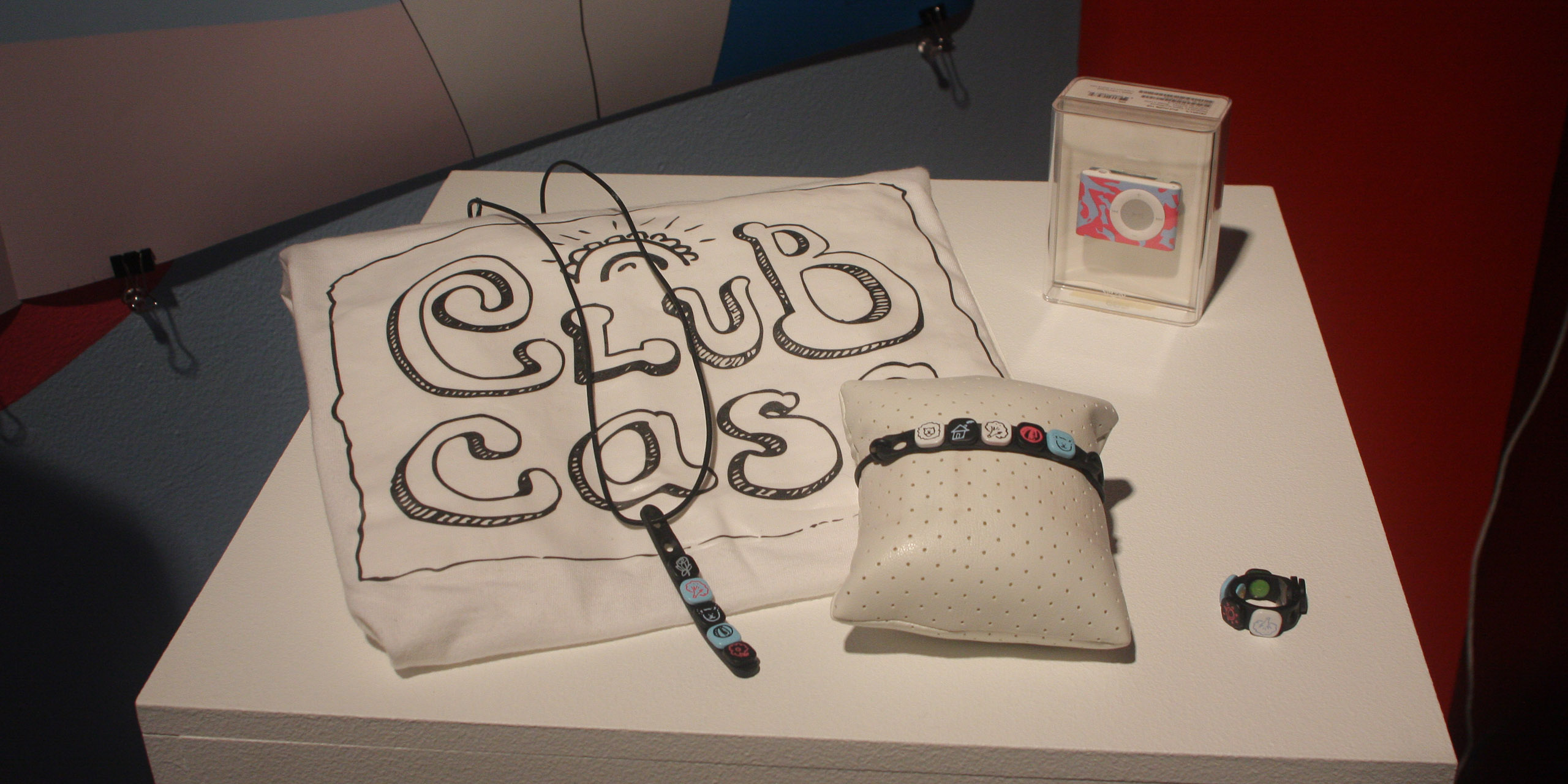
Research and Project Development
The first phase of the project was a period of extensive research, during which students were briefed on the medical and social aspects of cervical cancer. They then visited public schools in East L.A., meeting with clinicians and school district administrators to better understand the society and environment where their campaign would be reaching.
They conducted “girl-on-the-street” interviews with preteens, with the aim of better understanding how girls this age think, how they spend their time, and what that they are interested in. Students gained insight into the common barriers to HPV vaccine acceptance by meeting with Annenberg School doctoral students, who had conducted focus groups with the mothers of preteen girls.
Project Outcomes
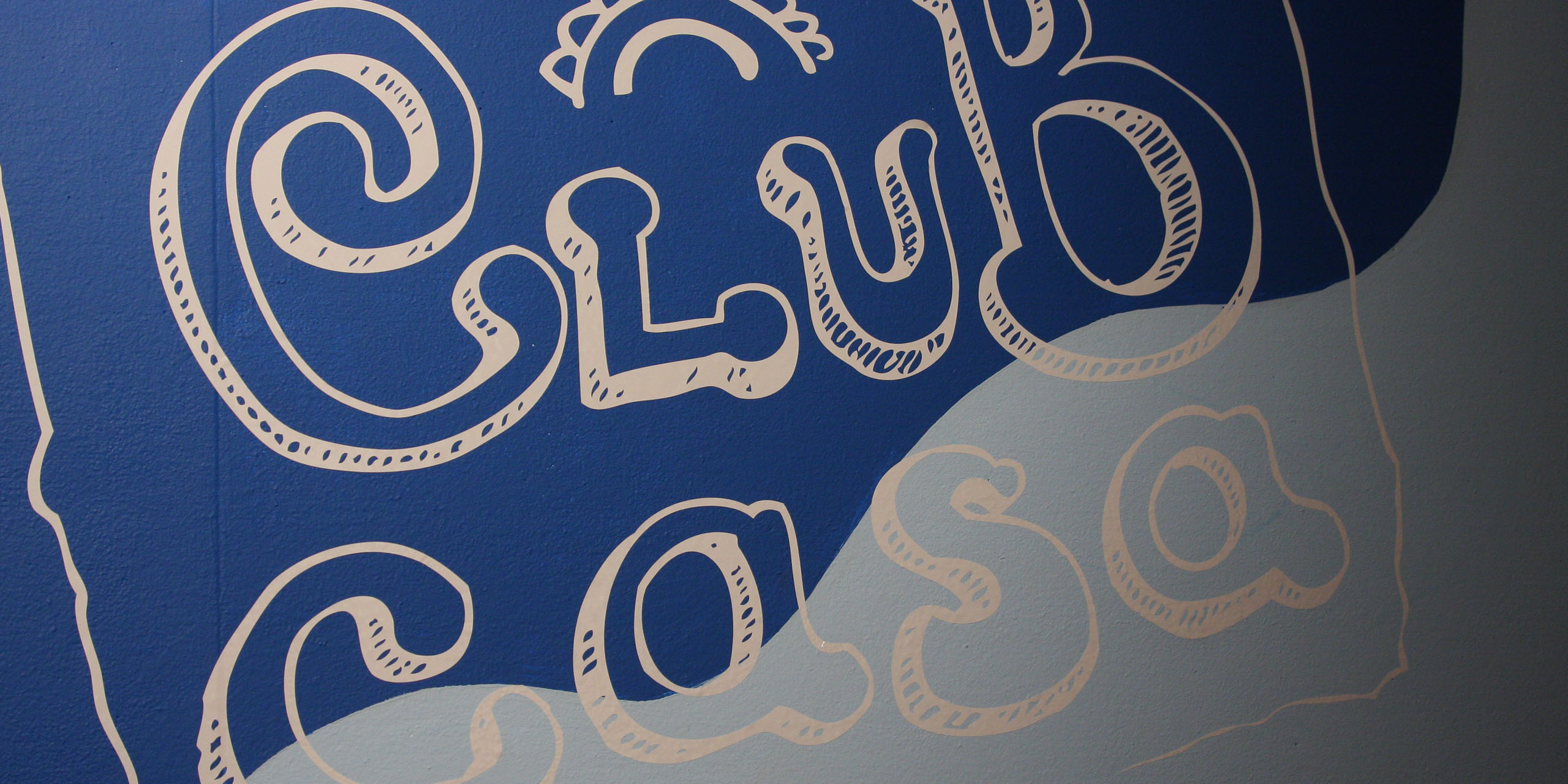 close
close
Club Casa
Read moreJon Farrell, Chi Hey Lee and Jupone Wang.
CLUB CASA taps into the sociology and mindset of preteen girls, as observed during school visits and through street research. Students found that these girls often look to each other for affirmation, acceptance, encouragement and empowerment. This means they’re far more likely to accept—and even ask for—the HPV vaccine if they see their peers receiving it. Club Casa is a virtual “girls’ club” committed to empowerment and healthy living. When a preteen joins the online group, she receives membership materials and communications encouraging her to get the HPV shots. She also receives membership swag such as branded T-shirts and bracelets, serving as public affirmation of her personal commitment to fighting cervical cancer by getting vaccinated. This in turn encourages her peers to become vaccinated as well.
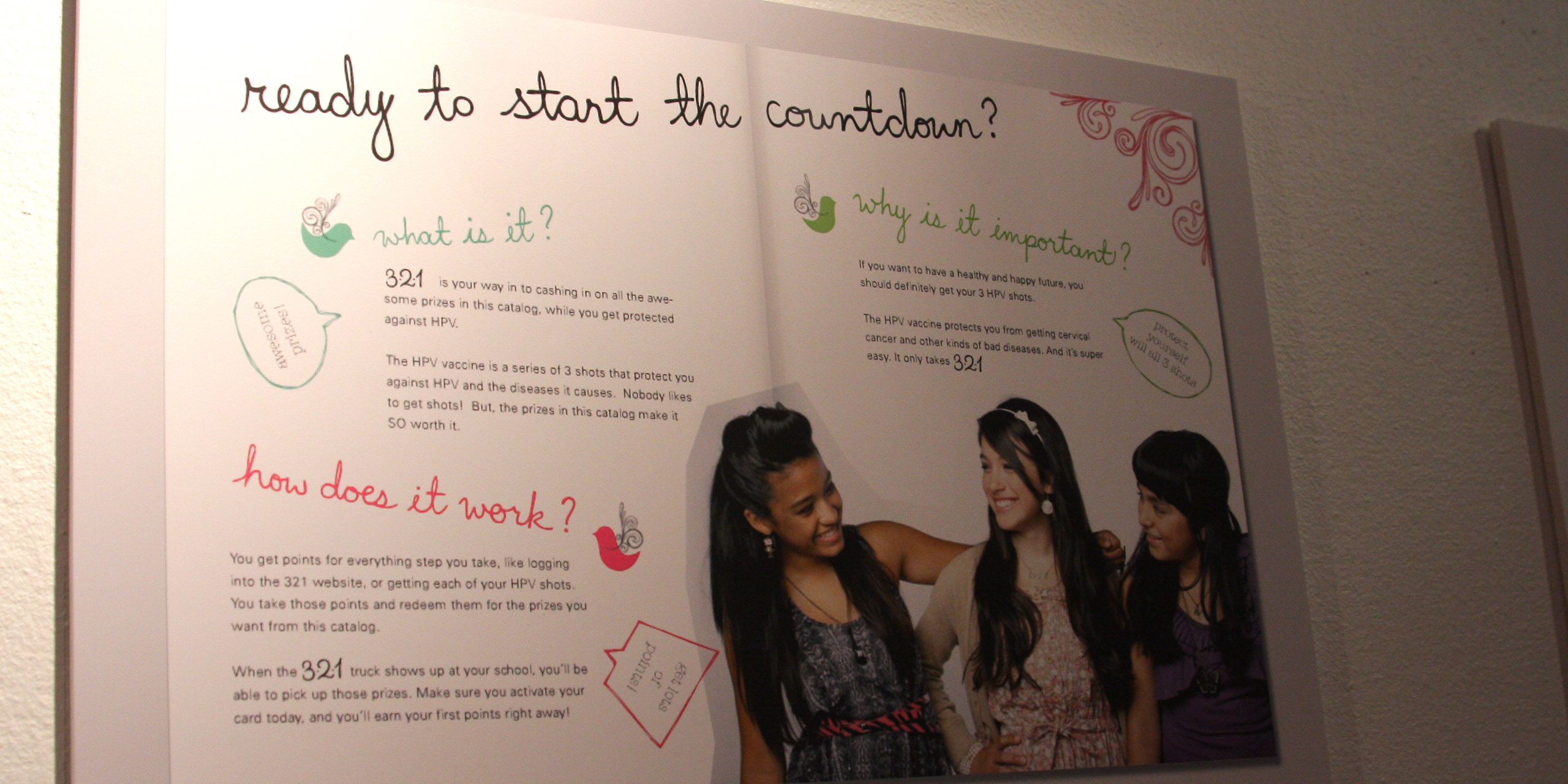 close
close
3-2-1
Read moreAngy Che, Mitos Corpuz and Melissa Ploysophon.
3-2-1 was inspired by a troubling statistic: many girls get the first of the three-shot HPV series, but only a small percentage receive the required second and third shots. The objective of the 3-2-1 program is to encourage girls to follow through with the entire vaccination series. The centerpiece of the program is a fun, preteen-friendly incentive system, rewarding points to participants for a range of desirable behaviors: learning about HPV, posting photos to the 3-2-1 website, having their vaccination permission slips signed by mom, urging their friends to get the vaccine and, of course, getting the HPV vaccine itself. Inspirational messages are conveyed to girls through the campaign website, postcards, email and text messages for the six-month duration of the vaccine series, and points awarded increase as the participant continues with the series. Points can then be redeemed for a range of gifts and prizes, available both online and from a print catalog.
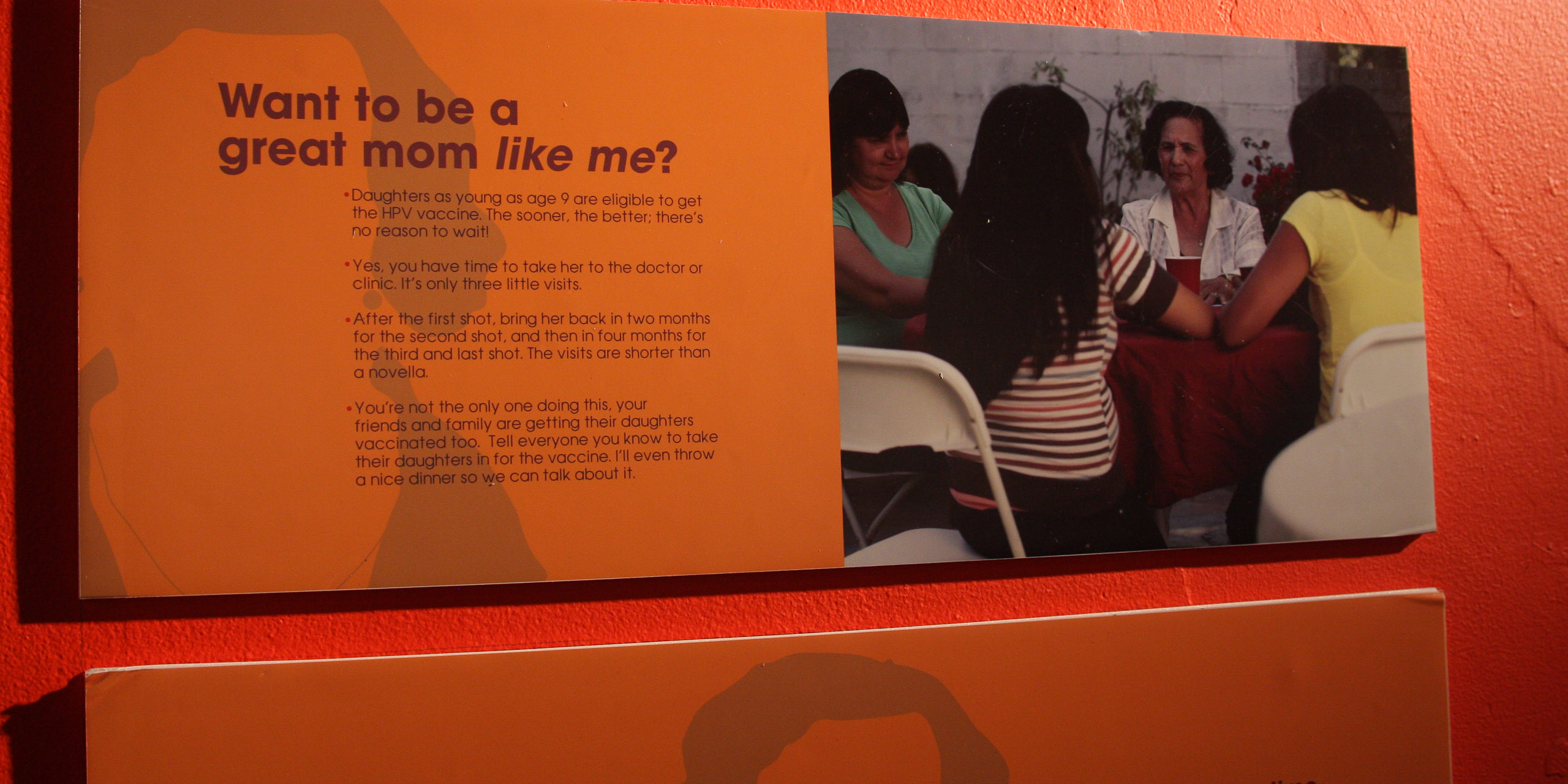 close
close
Abuela Knows
Read moreJeffrey Benavides, Nate Eggert and Jorge Garduno.
ABUELA KNOWS was inspired by the focus group finding that mothers are often reluctant to allow their daughters to get the HPV vaccination because they fear they will be criticized by their own mothers—the family’s abuela (grandmother)—oftentimes the central authority in Latino households. In response to this mindset, students created a character named Abuela, the all-knowing, kind and never-questioned family matriarch. Just as she gives sage advice on everything from fixing a car to mending a broken heart, Abuela is featured in a series of videos, posters and brochures, urging her daughters to allow her granddaughters to receive the HPV vaccine.
Next Steps
Robert Haile, professor at USC’s Keck School of Medicine—described by the class as the “wizard” behind the campaign’s genesis—was impressed by the campaigns that emerged from the class. “I had very high expectations. The Es Tiempo campaign grew out of a similar studio, and it’s been very well received to the audiences we’ve presented it to,” said Haile. “I was expecting this to be of similar high quality, and I wasn’t disappointed.”
The goal of USC partners is to develop an implementation strategy for the Para Nuestras Hijas campaign in 2011.
